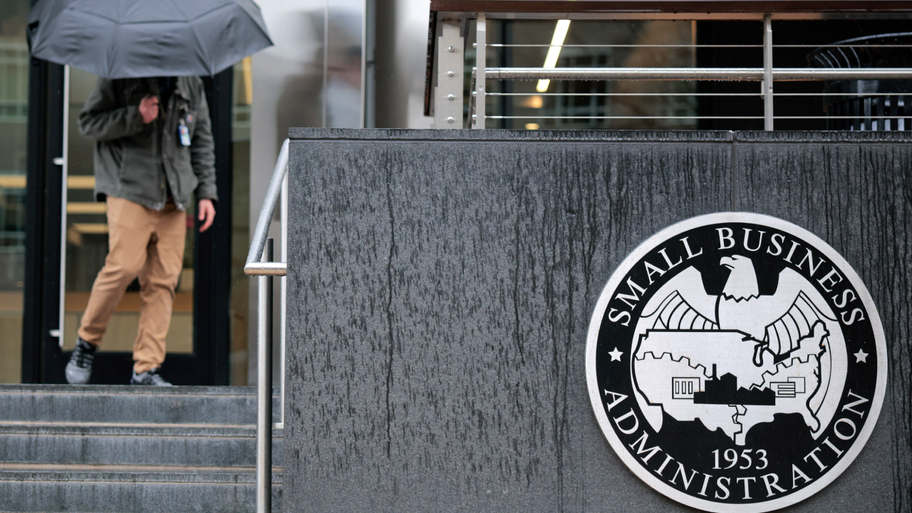What is the student loan statute of limitations?
Know your rights when it comes to your defaulted student loans.
National Small Business Week, established by the Small Business Bureau, is a way to celebrate small business and the impact they make on the American economy.

Small business owners play a vital role in supporting local economies, providing jobs and diversifying the business sphere. Whether it’s your local mom-and-pop restaurant, a small-scale farmer, a specialty manufacturer or an e-commerce craft retailer, take some time to appreciate the small businesses that keep America running.
For more information, check out some of Bankrate’s small business features, as well as exclusive tips for getting a small business loan.
Small businesses play a big role in the American economy. According to the SBA:
Small businesses also play a crucial role in offering employment and economic opportunities for many demographic groups. According to the US Census:
Small businesses also make a large impact on the local economy, and foster growth in community in the towns and cities they’re based in.
There are a variety of loan products available to businesses, and which one that works best for you will depend on your needs. When looking at financing, it’s important to consider:
Shopping around for lenders during the loan search is also important, as you’ll be able to compare different loan terms, fees, interest and your qualification chances.

When filling out a loan application, your lender will likely look at multiple factors to determine if you’re eligible for a business loan, including:
Your lender may also ask you for a business plan highlighting what your business does, a cash flow statement, your revenue projections and other important information about your business.

Know your rights when it comes to your defaulted student loans.
If you’re pursuing Public Service Loan Forgiveness, you probably work with FedLoan.
If your discretionary income is low, you could pay $0 on your federal student loans.
Borrowers in certain states will see balances grow very quickly.
Your next steps will depend on whether you’re approved for a loan or not. If you’re approved, then you’ll receive the funds and be given a repayment plan to adhere to. The sooner you pay your loan off, the more you save, especially as some lenders offer early repayment discounts.
If you’re denied a loan, you can ask the lender why, as they may have helpful feedback about why you were rejected that you can take into account for a future application. Otherwise, you can look into alternative financing options.

Due to high rates of student loan delinquency, nearly 60 percent of America’s HBCUs could lose access to federal aid.
More than 1 million federal student loan borrowers are stuck in a financial limbo.
Recent court decisions on loan forgiveness and repayment plans impact millions of borrowers.
You can affect draft regulations by submitting public comments.
If you’re looking to finance your small business, there are a few ways you can get the funding you need.
The Small Business Administration (SBA) is a federal agency tasked with promoting the growth and survival of small businesses in the United States. Founded in 1953, the agency conducts studies on the financial health and demographics of small businesses, offers education for entrepreneurs, helps promote government contracts with small businesses and offers funding for small businesses in the form of grants and loans.
SBA loans are loans that are guaranteed by the SBA, allowing business owners who may not meet the requirements for traditional loans to access affordable funding.
The loans are issued by banks and lenders approved by the SBA and are backed by the administration with federal funding so that, if the loan defaults, the lender is able to recover the money. They also come with capped interest rates, making them more affordable than many private loans.
On the downside, SBA loans can take longer to be approved for due to the extra requirements, making it a slower form of funding. They also have a high rejection rate compared to other types of loans.
While specific credit and revenue requirements vary depending on the loan size and type, in general, to qualify for an SBA loan, your business must:
There are several types of SBA loans available, depending on your needs. Working with an SBA lender can help you narrow down which loan is best for you.
| SBA loan type | Requirements | Purpose |
|---|---|---|
| Standard SBA requirements | Any eligible business purpose | |
| Standard SBA requirements; must be used for equipment or real estate | Long-term financing for real estate and large equipment | |
| Standard SBA requirements; cannot be used for real estate | Any eligible, lower-amount business purpose | |
| Standard SBA requirements | Faster response times | |
| Business must be in a declared disaster area | Business recovery after a natural or economic disaster | |
| Various | Flexible funding, line-of-credit style |

Small Businesses Want Smaller Loans, But It's Getting Harder| Bankrate
Read more

The SBA Is Changing. Here's What Small Business Owners Need To Know| Bankrate
Read more

From attorney to baker: Daphne Subar on the creation of Subarzsweets | Bankrate
Read more

Small business, big vision: Anandita Yadav’s Zillajee sleepwear brand | Bankrate
Read more
Looking for a business credit card? These are the best business credit cards that offer generous rewards, business-friendly perks, and easy redemption options. Plus, read expert advice from our team.
New businesses can struggle to find funding, but the right lender may help your startup soar.
SBA small business loans are issued by private lenders like banks, CDFIs and nonprofit community lenders. But they’re backed by the federal government and can provide low-interest loans and lines of credit to many types of small business owners.